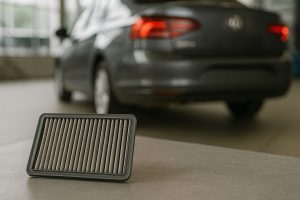When drivers think about improving fuel economy, they often focus on driving habits, tire pressure, or fuel quality. While these factors are important, one of the most overlooked yet highly influential aspects is the condition of your vehicle’s filters. Whether it’s the air filter, fuel filter, oil filter, or cabin filter, their cleanliness and efficiency directly impact how efficiently your engine operates — and consequently, how much fuel it consumes.
A dirty or clogged filter may seem like a small issue, but over time, it can lead to higher fuel consumption, reduced engine performance, and even costly repairs. Let’s dive into why keeping your filters clean is essential for saving money at the pump.
How Filters Affect Fuel Economy

Filters are designed to prevent contaminants — like dust, dirt, rust, and debris — from entering critical components of your vehicle. However, as they trap these particles, they gradually become clogged. A clogged filter forces the engine to work harder, which leads to increased fuel consumption.
Key ways filters influence fuel efficiency:
-
Air Filter: Restricts airflow if dirty, causing the engine to run rich (more fuel than necessary).
-
Fuel Filter: Blocks fuel flow if clogged, making the fuel pump work harder and affecting combustion efficiency.
-
Oil Filter: Poor filtration increases engine friction, which slightly reduces fuel efficiency.
-
Cabin Filter: Indirect impact — a clogged cabin filter can strain the climate control system, indirectly increasing load.
The Science: Why a Dirty Air Filter Hurts Mileage
The engine’s combustion process depends on a precise air-to-fuel ratio. When the air filter is clogged, oxygen flow to the engine decreases. Modern cars compensate with more fuel to maintain power output — but this “extra” fuel is waste. In older carbureted engines, the effect is even more pronounced, with fuel efficiency dropping significantly.
Fuel Economy Loss by Filter Type
| Filter Type | Potential Fuel Economy Loss | Main Cause | Maintenance Interval |
|---|---|---|---|
| Air Filter | 5–10% | Reduced airflow, rich mixture | 15,000–30,000 km |
| Fuel Filter | 2–5% | Restricted fuel delivery | 20,000–40,000 km |
| Oil Filter | 1–2% | Increased internal friction | Every oil change |
| Cabin Filter | Minimal direct impact | HVAC strain | 15,000–25,000 km |
Note: These percentages are approximate and vary depending on driving conditions, vehicle age, and maintenance habits.
Signs Your Filters May Be Hurting Fuel Efficiency
-
Noticeable drop in mileage without changes in driving style.
-
Sluggish acceleration or reduced engine response.
-
Unusual engine sounds, like coughing or sputtering.
-
Persistent check engine light related to airflow or fuel issues.
-
Strong smell of fuel during operation.
Real-World Practices vs. Manufacturer Recommendations
Manufacturers provide optimal replacement schedules based on ideal conditions. However, real-world driving often exposes vehicles to dust, poor fuel quality, and extreme weather, meaning you may need to replace filters more frequently.
| Filter Type | Manufacturer Interval | Real-World Interval (Dusty/Urban/Extreme) |
|---|---|---|
| Air Filter | 30,000 km | 15,000–20,000 km |
| Fuel Filter | 40,000 km | 20,000–25,000 km |
| Oil Filter | 10,000–15,000 km | Every oil change |
| Cabin Filter | 25,000 km | 15,000 km or annually |
Cost of Neglecting Filter Maintenance
Neglecting filter replacement not only reduces fuel economy but can also cause expensive repairs:
-
Damaged fuel pump from a clogged fuel filter.
-
Contaminated engine oil from a neglected oil filter.
-
Worn engine components due to poor air filtration.
Over a year, just a 5% drop in fuel economy could cost hundreds more in fuel, depending on your driving habits.
How to Maintain Filters for Maximum Fuel Savings

Checklist for Optimal Filter Maintenance:
-
Inspect the air filter at least twice a year.
-
Replace the fuel filter on schedule or sooner in regions with lower fuel quality.
-
Change the oil and oil filter together — never reuse an old filter.
-
Keep the cabin filter clean to reduce strain on your climate system.
Pro Tip: Always choose filters that match or exceed OEM specifications. Cheaper, low-quality filters may save money upfront but could cost more in the long run.
Final Thoughts
Fuel economy isn’t just about driving gently or finding cheaper fuel. It starts with ensuring your vehicle breathes, burns, and operates efficiently — and clean filters are key to that process. Regular inspection and timely replacement not only save money on fuel but also extend the life of your engine and related components.
If your car hasn’t had a filter check recently, it’s worth doing now — the small cost of replacement could pay for itself quickly in fuel savings.
You can easily find high-quality replacements and upgrade your car’s efficiency with premium parts here: buy car filters.